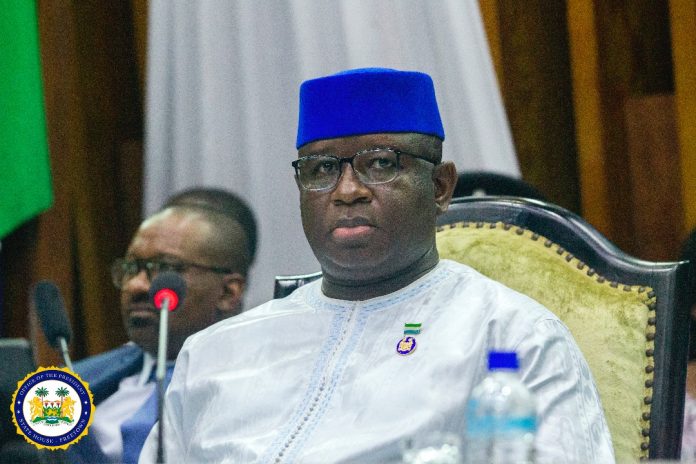By Foday Moriba Conteh
In 2007, the UN Secretary-General’s Policy Committee defined peace building as follows: “Peace building involves a range of measures targeted to reduce the risk of lapsing or relapsing into conflict by strengthening national capacities at all levels for conflict management, and to lay the foundations for sustainable peace and sustainable development.
“Peace building strategies must be coherent and tailored to specific needs of the country concerned, based on national ownership, and should comprise a carefully prioritized, sequenced and therefore relatively narrow set of activities aimed at achieving the above objectives.”
As such, peace with justice is a way of thinking and acting which promotes nonviolent solutions to everyday problems and thereby contributes to a civil society.
Peace with justice sets standards for the security of children and for primary health care; promotes an end to the violence of poverty; and most importantly in our own case facilitates personal fulfilment through the creation of rewarding opportunities in education and employment
To make President Bio’s proposed Peace and National Cohesion Commission, with the focus on promoting peace with justice and the practice of nonviolence nationally accepted, it should among other features have an annual Peace Prize and in its daily affairs consistently encourage public interest and discussion about issues of peace, social justice, human rights, and non-violent conflict resolution.
In reaching for peace for national reconciliation, it is very important that the Government of the day realizes that international declarations of fundamental values and principles are very useful for building a just, sustainable, and peaceful global society in the 21st century.
United Nations Cyber School Bus Peace Education states: “A culture of peace will be achieved when citizens of the world understand global problems, have the skills to resolve conflicts and struggle for justice non-violently, live by international standards of human rights and equity, appreciate cultural diversity, and respect the Earth and each other.”
As such, peacebuilding is a series of complementary processes beginning with an activity that aims to resolve injustice in nonviolent ways and to transform the cultural and structural conditions that generate deadly or destructive conflict.
It revolves around developing constructive personal, group, and political relationships across ethnic, religious, class, national, and racial boundaries. This process includes violence prevention; conflict management, resolution, or transformation; and post-conflict reconciliation or trauma healing, i.e., before, during, and after any given case of violence.
Researchers and practitioners have found out that peacebuilding is most effective and durable when it relies upon local conceptions of peace and the underlying dynamics which foster or enable conflict.
As such, peacebuilding employs strategic multidisciplinary, cross-sector techniques and methods over the long run and at all levels of society to establish and sustain relationships among the people—thus engendering sustainable peace.
Strategic peacebuilding activities address the root causes or potential causes of violence, create a societal expectation for peaceful conflict resolution, and stabilize society politically and socioeconomically.
Successful peacebuilding activities create an environment supportive of self-sustaining, durable peace; reconcile opponents; prevent conflict from restarting; integrate civil society; create rule of law mechanisms; and address underlying structural and societal issues.
Even if peacebuilding has remained a largely amorphous concept without clear guidelines or goals, common to all definitions is the agreement that improving human security is the central task of peacebuilding.
In this sense, peacebuilding includes a wide range of efforts by diverse actors in government and civil society at the community, national, and international levels to address the root causes of violence and ensure civilians have freedom from fear (negative peace), freedom from want (positive peace) and freedom from humiliation before, during, and after violent conflict.
Before conflict becomes violent, preventive peacebuilding efforts, such as diplomatic, economic development, social, educational, health, legal and security sector reform programs, address potential sources of instability and violence. This is also termed conflict prevention.
Peacebuilding efforts aim to manage, mitigate, resolve and transform central aspects of the conflict through official diplomacy; as well as through civil society peace processes and informal dialogue, negotiation, and mediation.
Peacebuilding addresses economic, social and political root causes of violence and fosters reconciliation to prevent the return of structural and direct violence.
Peacebuilding efforts aim to change beliefs, attitudes and behaviors to transform the short and long term dynamics between individuals and groups toward a more stable, peaceful coexistence. Peacebuilding is an approach to an entire set of interrelated efforts that support peace.




